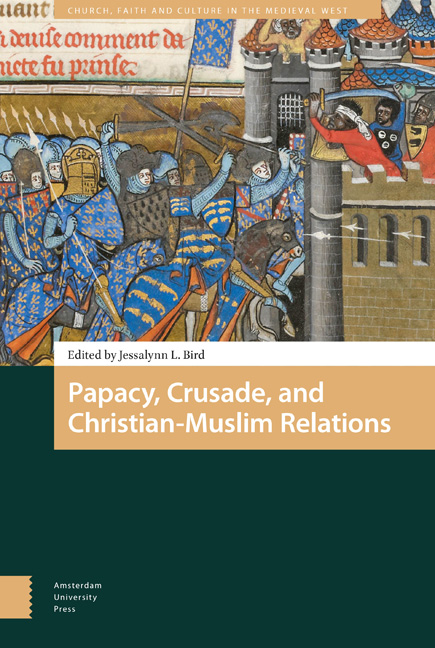10 - Pro Deo et Amore Marchionis: Honorius III, William VI of Montferrat, and the Fifth Crusade in Greece
Published online by Cambridge University Press: 22 December 2020
Summary
Abstract
The Fifth Crusade is well-known for the absence of Frederick II on it, despite its many other participants, but the Holy Roman Emperor was not the only Christian knight who had taken the Cross and then made alternate arrangements. Marquis William VI of Montferrat worked closely with Pope Honorius III and the future Pope Gregory IX to organize the Fifth Crusade in Italy, but eventually led an army of his own against Theodore Doukas in Greece instead. This article analyses the development and diversion of William's crusade as a function of his relationships with Frederick and the papacy, demonstrating the climate of innovation and cooperation present in early thirteenth-century crusading.
Keywords: Crusades, Holy Roman Emperor, papacy, Italy, Byzantium, Mediterranean
Near the end of the year 1225, John Apokaukos, the Greek Orthodox bishop of Naupaktos, referred in a letter to ‘the arrogant marquis whose ships filled the sea and whose horses the plains of Halmyros’. The marquis about whom he wrote, William VI of Montferrat, had died there suddenly on 17 September 1225. To hear the early modern chronicler Benvenuto Sangiorgio tell the tale, the cause of death was poison, but thirteenth-century contemporaries all attributed it to natural causes instead. With William ended an extraordinary episode in the history of the crusades in general and the Fifth Crusade in particular. Even before the 1983 publication of the 1224 carta di mutuo by Patrizia Cancian, William of Montferrat's crusade to rescue his half-brother's kingdom with papal and imperial support had attracted much interest from Italian historians including Mario Gallina and Aldo Settia. In recent years, those who study the crusades and the Latin East have also begun to share in some of that interest. Filip Van Tricht has discussed William's crusade in the context of the political history of the Latin Empire, and Nikolaos Chrissis gave it an entire chapter in his book on the crusades as part of Latin–Byzantine relations after the Fourth Crusade.
Chrissis is right to emphasize the uniqueness and significance of William's 1225 crusade in the history of the institution, considering that it was the first to grant indulgences on par with those granted for the Holy Land and the first to preach the schismatic Greeks as enemies of Christendom.
- Type
- Chapter
- Information
- Papacy, Crusade, and Christian-Muslim Relations , pp. 211 - 224Publisher: Amsterdam University PressPrint publication year: 2018



